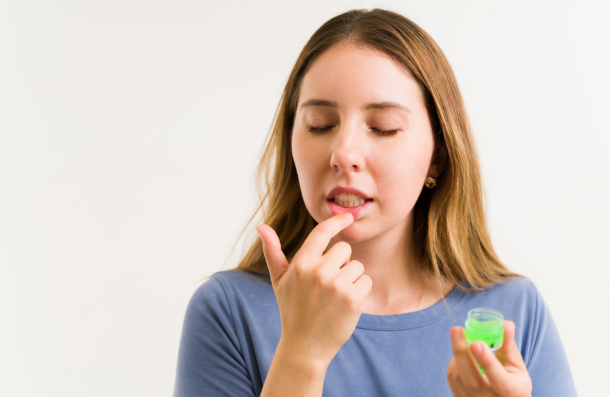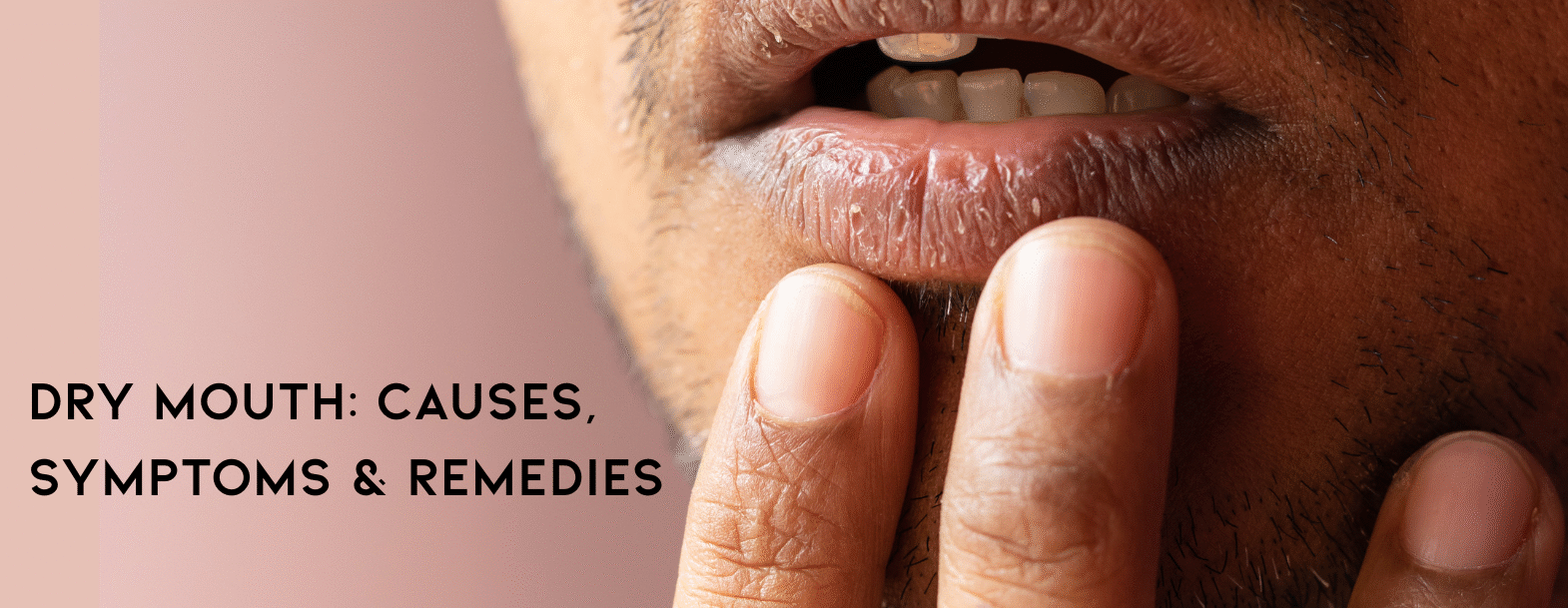Dry Mouth
- Home
- /
- Blog
- /
- Dental Advice
- /
- Dry Mouth
Dry mouth (also known as xerostomia) is more than just a nuisance. It can affect your comfort, your dental health, and your quality of life. In this article, we’ll explain the main causes, key symptoms, and practical remedies you can start using right away.
Dry mouth (also known as xerostomia) is more than just a nuisance. It can affect your comfort, your dental health, and your quality of life. In this article, we’ll explain the main causes, key symptoms, and practical remedies you can start using right away.
Your mouth feels dry when your salivary glands don’t produce enough saliva. Saliva is vital — it helps with chewing, swallowing, speaking, and protecting your teeth by neutralising acids and washing away food debris.
Without enough saliva, oral tissues can become irritated, and your risk of tooth decay, gum disease, and oral infections increases.
Dry mouth may happen occasionally, but persistent dryness usually points to an underlying cause. Here are common factors:
Medication Side Effects
Many prescription and over-the-counter drugs list dry mouth as a side effect. This includes medications for blood pressure, depression, allergies, urinary incontinence, and more.
Dehydration & Fluid Loss
Not drinking enough, excessive sweating, vomiting, diarrhoea or illness can reduce overall body fluid and limit saliva production.
Breathing Through the Mouth & Nasal Blockage
If your nose is blocked, or you habitually breathe through your mouth—especially at night—your oral tissues may dry out.
Hormonal Changes & Other Factors
As we age, we often take more medications and body systems change, which increases dry mouth risk. Some women going through menopause report oral dryness.
Medical Treatments & Diseases

Dry mouth may present in different ways. Here are common symptoms:
A dry, sticky, or parched feeling in the mouth
Saliva that seems thick, stringy, or frothy
Bad breath (halitosis)
Altered taste or reduced sense of taste
Cracked lips, dry tongue, fissures
Difficulty chewing, swallowing or speaking
Burning or soreness of oral tissues
Increased dental decay or gum problems over time If you notice persistent dryness, or dryness with pain or bleeding, you should contact your dentist or GP
While some causes must be addressed medically, you can adopt many everyday strategies to help ease symptoms:
Hydration & Drinking Routine
Stimulate Saliva Flow
Use Moisturising Products
Modify Diet & Eating Habits
Sleep & Environment Aid
Review Medications
If a medicine is contributing, discuss options with your prescribing doctor. They might adjust dosage or switch to an alternative with fewer side effects.
Professional & Medical Treatments

You should see your dentist or GP if:
Dryness persists despite self-care
You struggle to eat, drink or speak
Your sense of taste changes persists
You have pain, swelling, bleeding, sores or white patches
You also have dry eyes, joint pain or other systemic issues (which might suggest Sjögren’s syndrome)
Early diagnosis and management can prevent long-term damage to your teeth, gums and comfort.
Dry mouth is common but often manageable. The key is early action and combining lifestyle changes, supportive products, and professional guidance. At Abbey Mead Dental & Implant Clinic, we encourage you to talk with us if you face persistent dryness. Together, we can identify the cause and tailor a plan to protect your oral health and comfort.
“Very friendly and welcoming. Brilliant service well recommended 👌”
“I recently joined this practice and have already had my initial review and my first filling. Both visits were handled with real professionalism and care. The staff are friendly and welcoming, and my dentist...”
“Just before going on a long anticipated holiday I had toothache and was frantic. I phoned the practice and the kindness and understanding of the staff was such a relief. I was seen that...”
“My dentist took great care over my repair, i thought. In fact i thought that she was quite excellent”
“Very professional and caring. I’m halfway through my dental implant and have received excellent treatment.”
“I broke a tooth on Sunday evening. I rang on Monday, not expecting to be seen for weeks as I wasn't in pain. Despite the practice being shorthanded I was seen on Friday morning...”
“My first appointment was an initial inspection. The dentist was polite and friendly and very helpful in explaining what he was doing and why as well as answering my questions. The whole experience was...”
Error: No feed with the ID 2 found.
Please go to the Instagram Feed settings page to create a feed.



